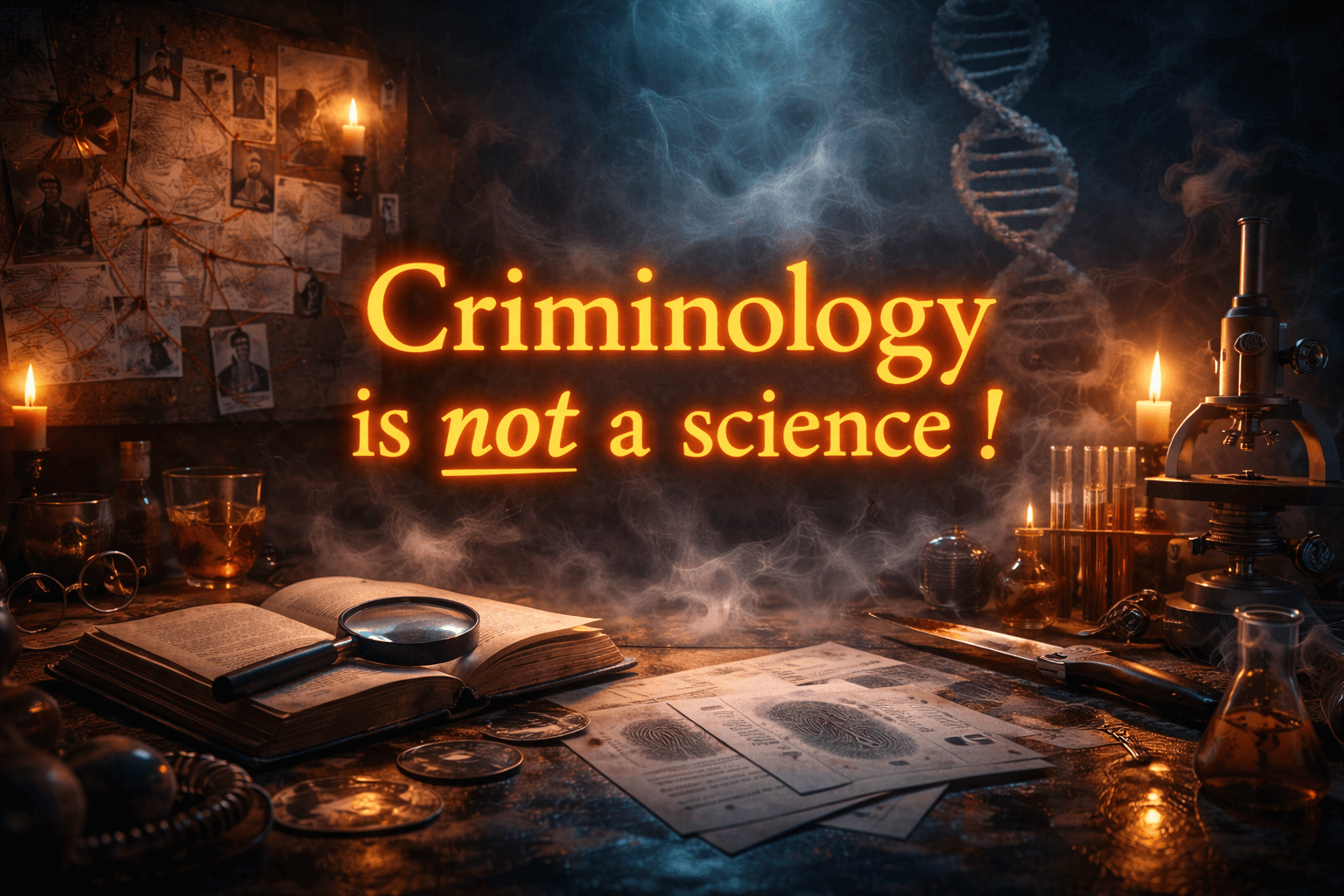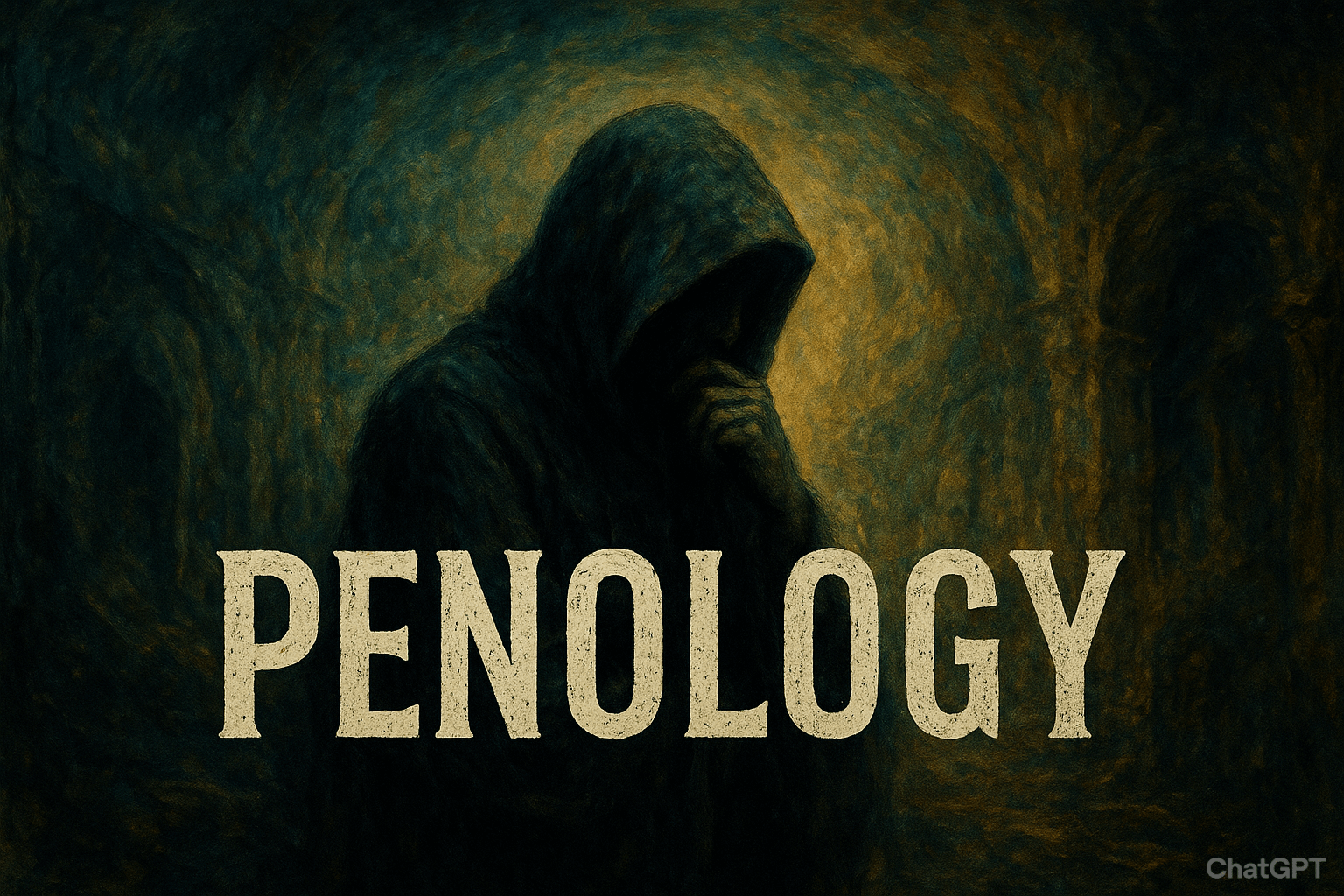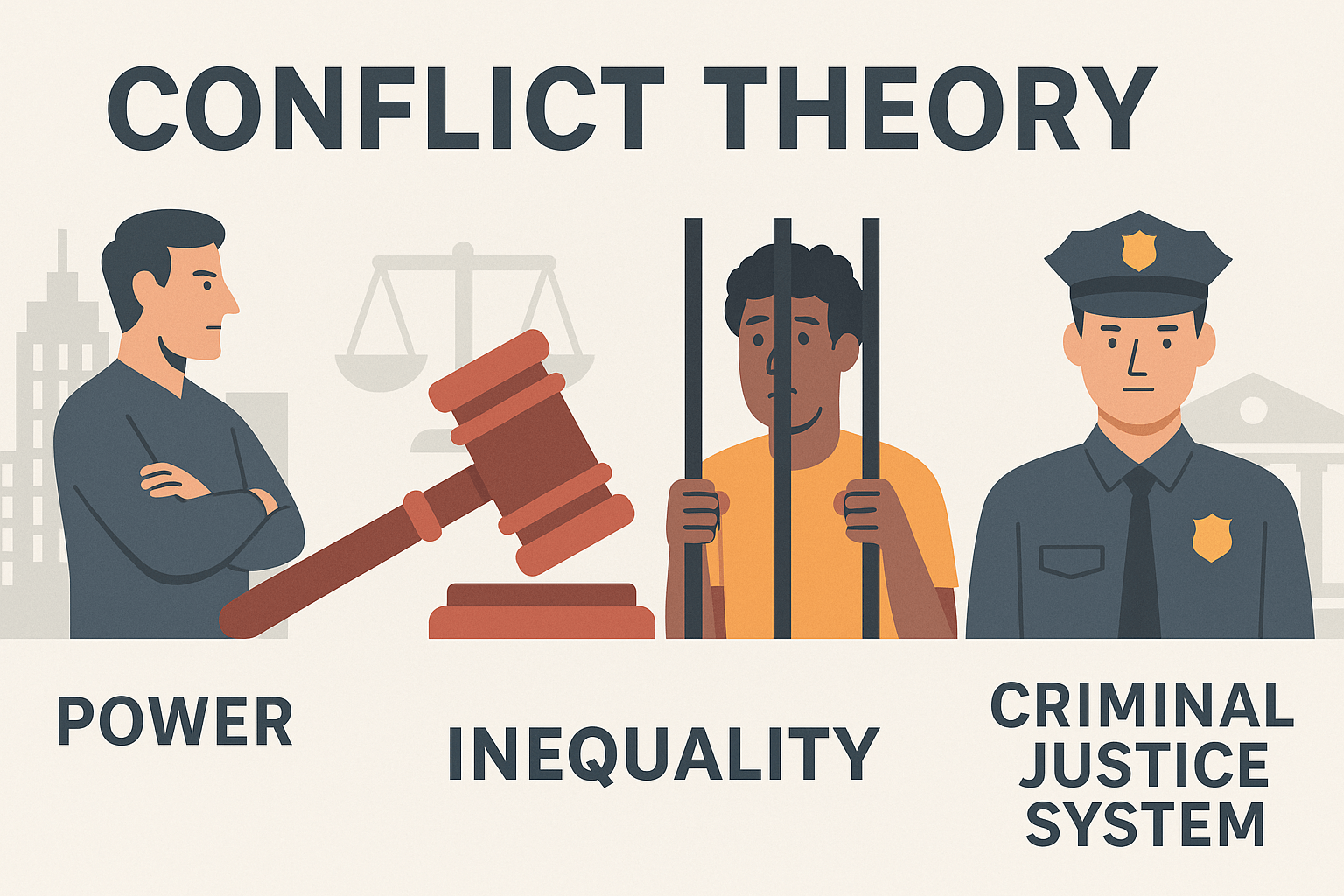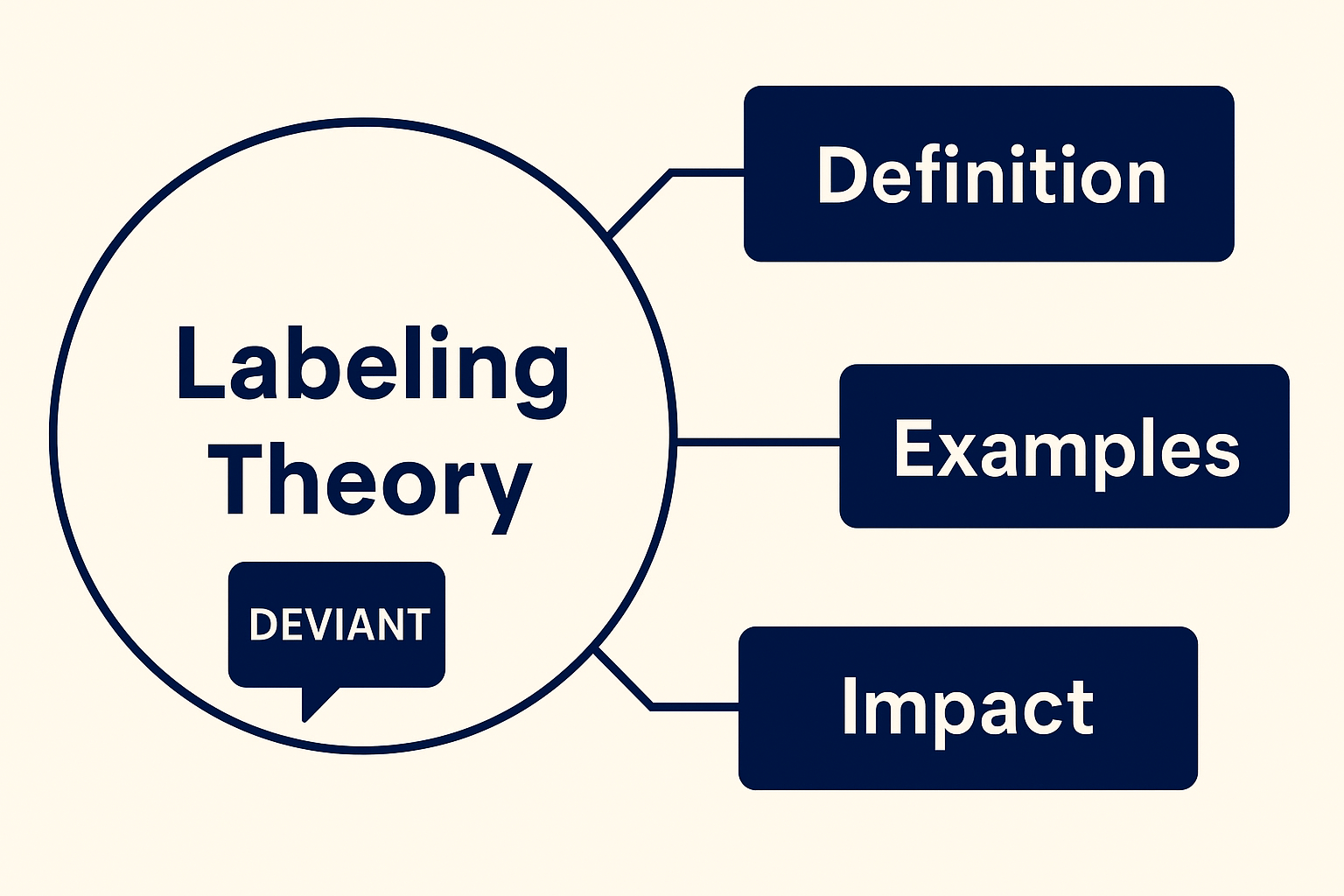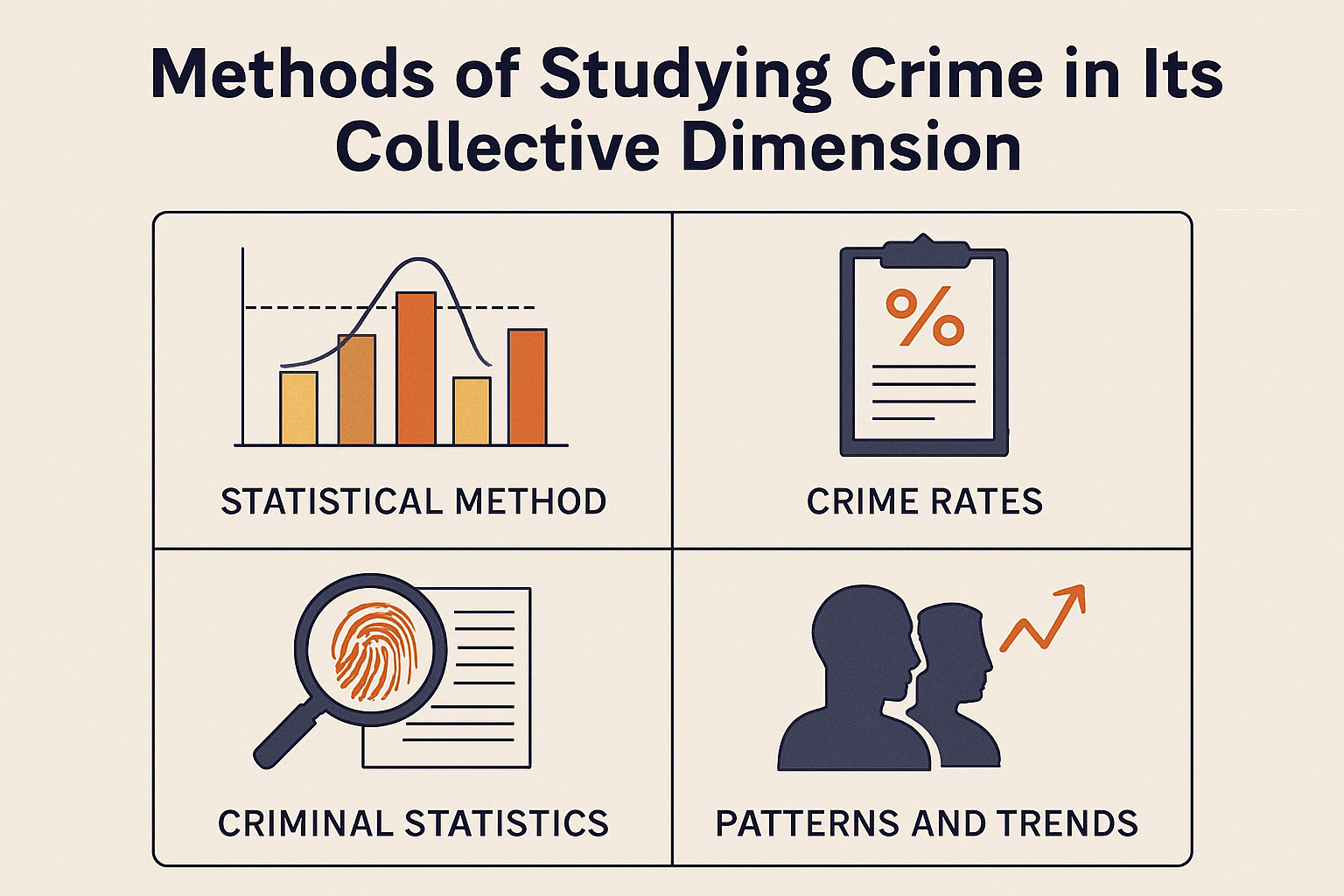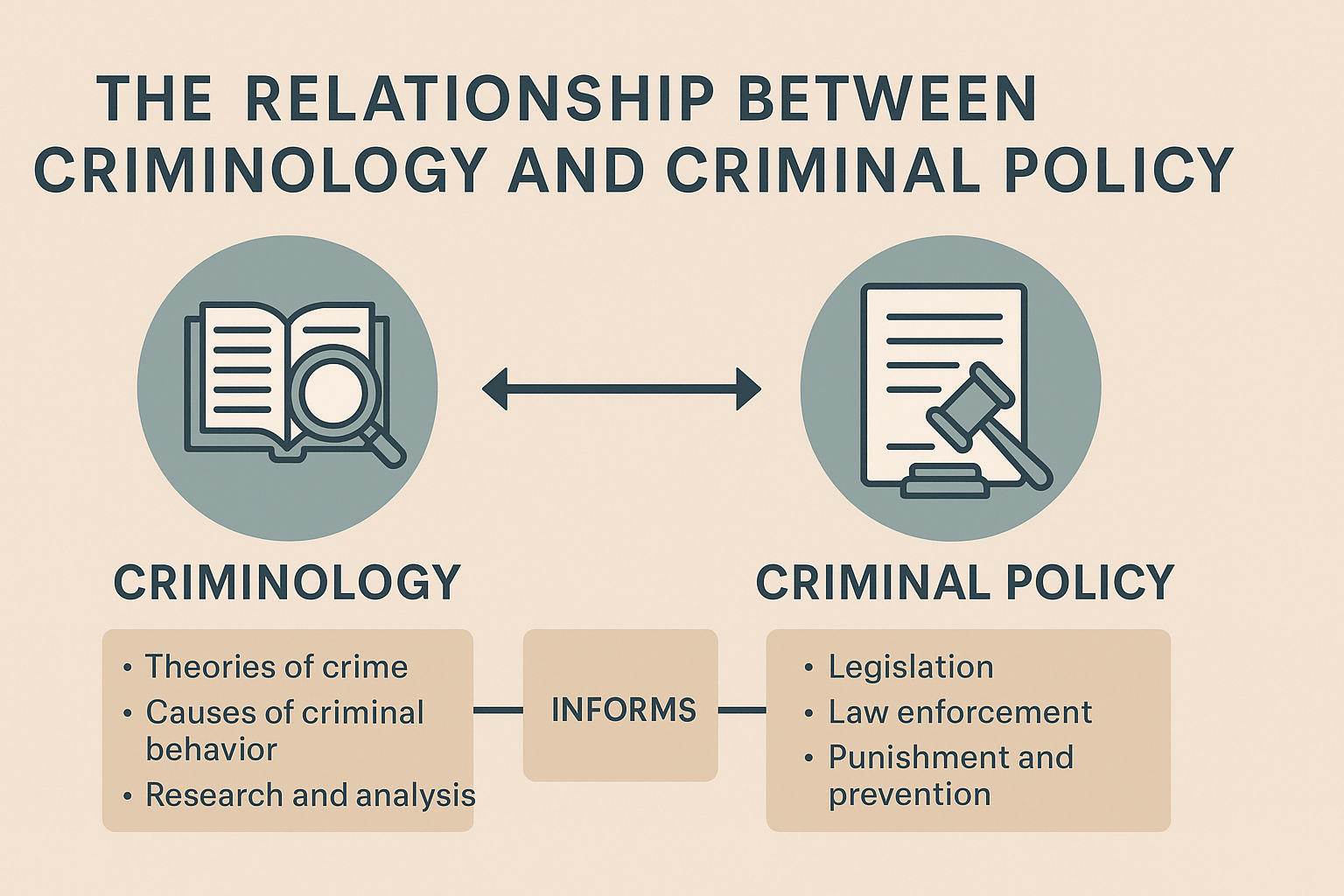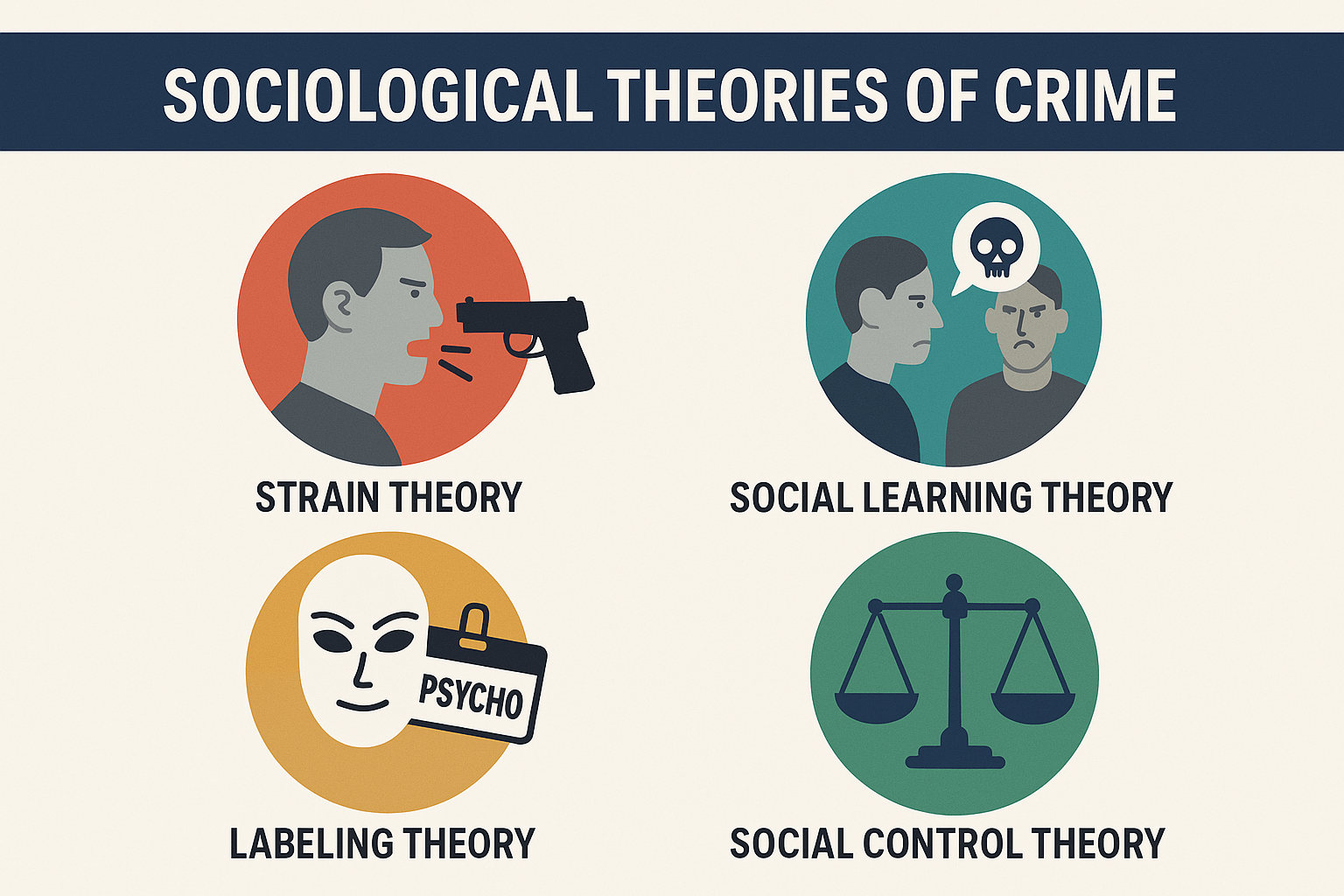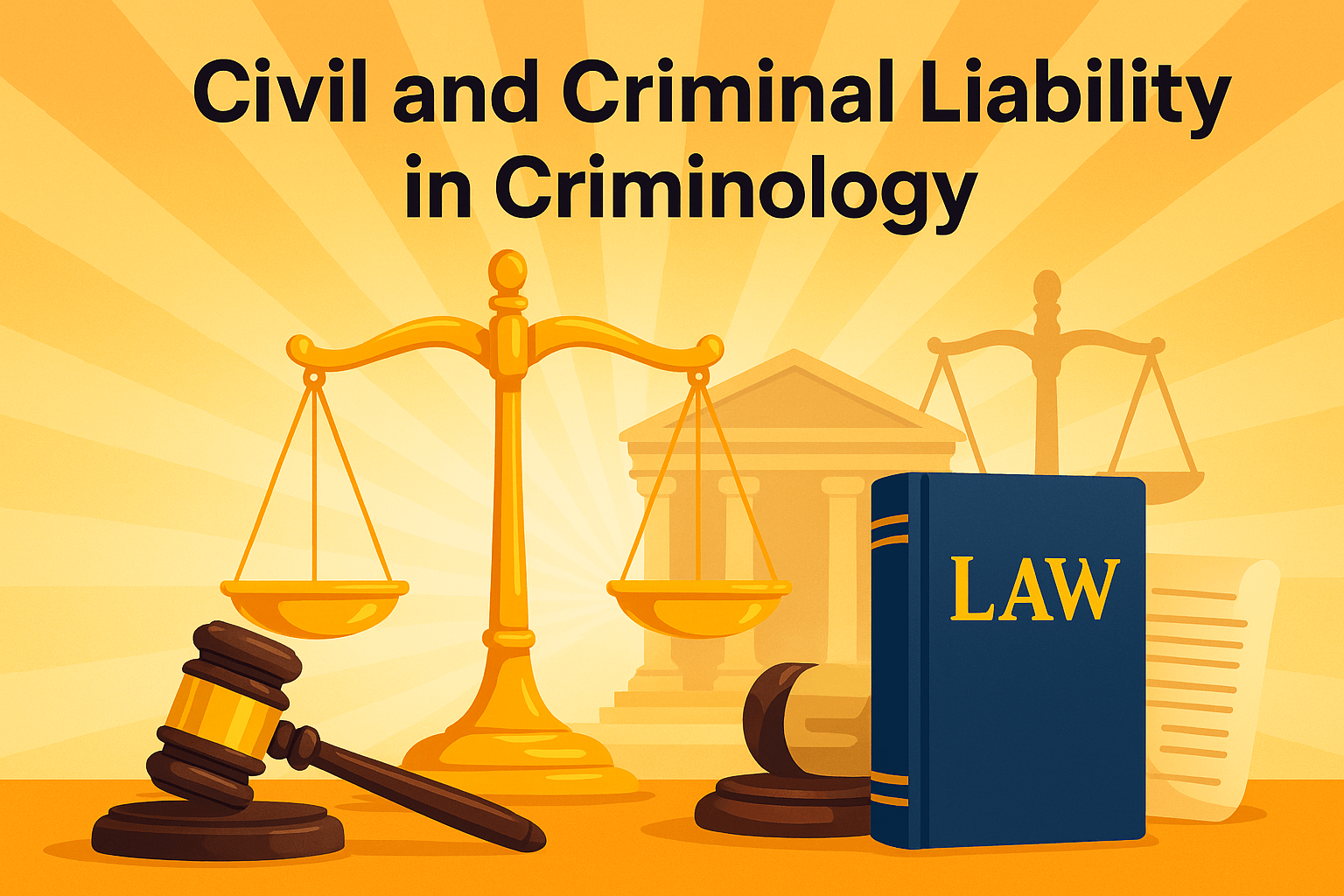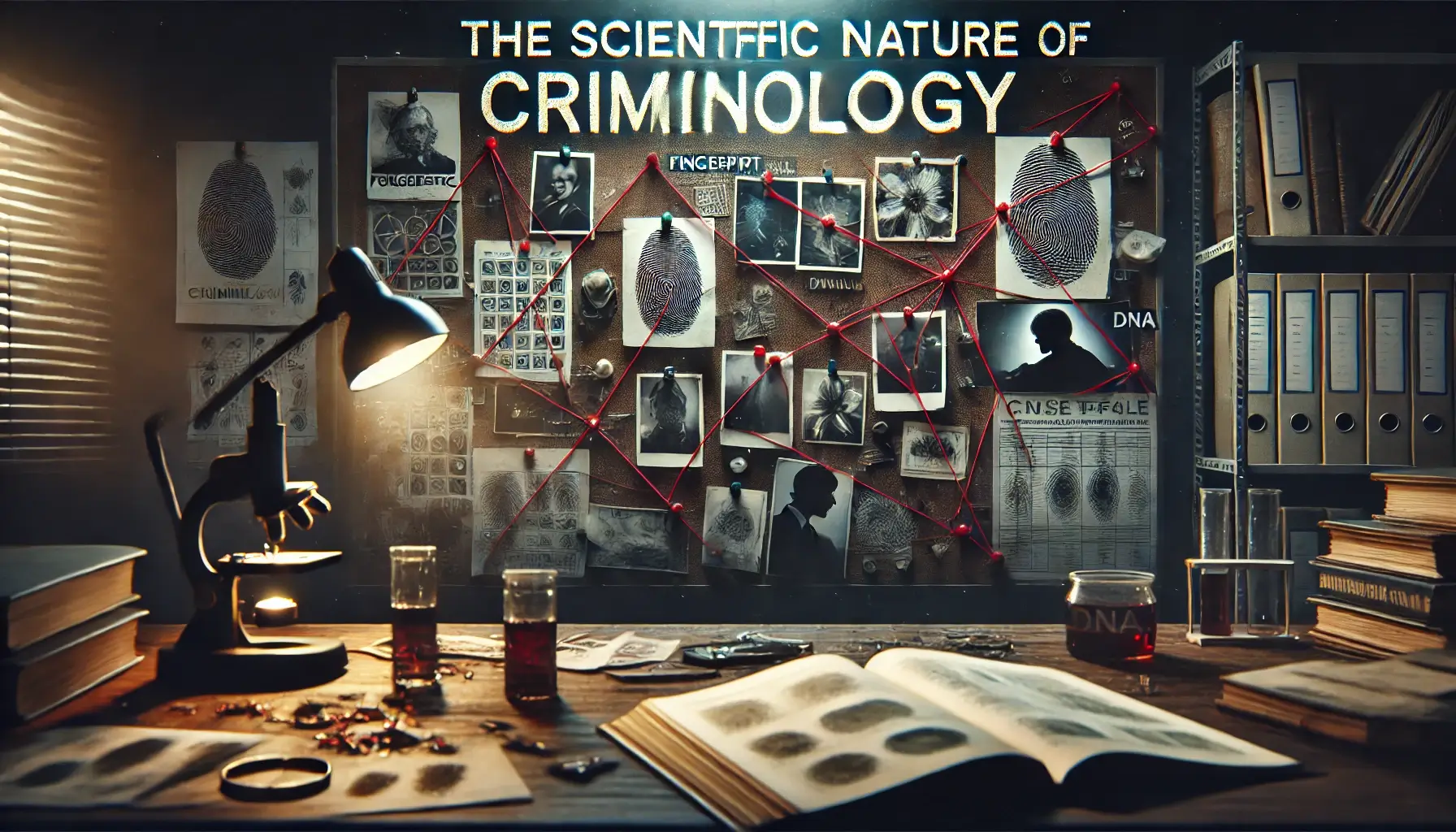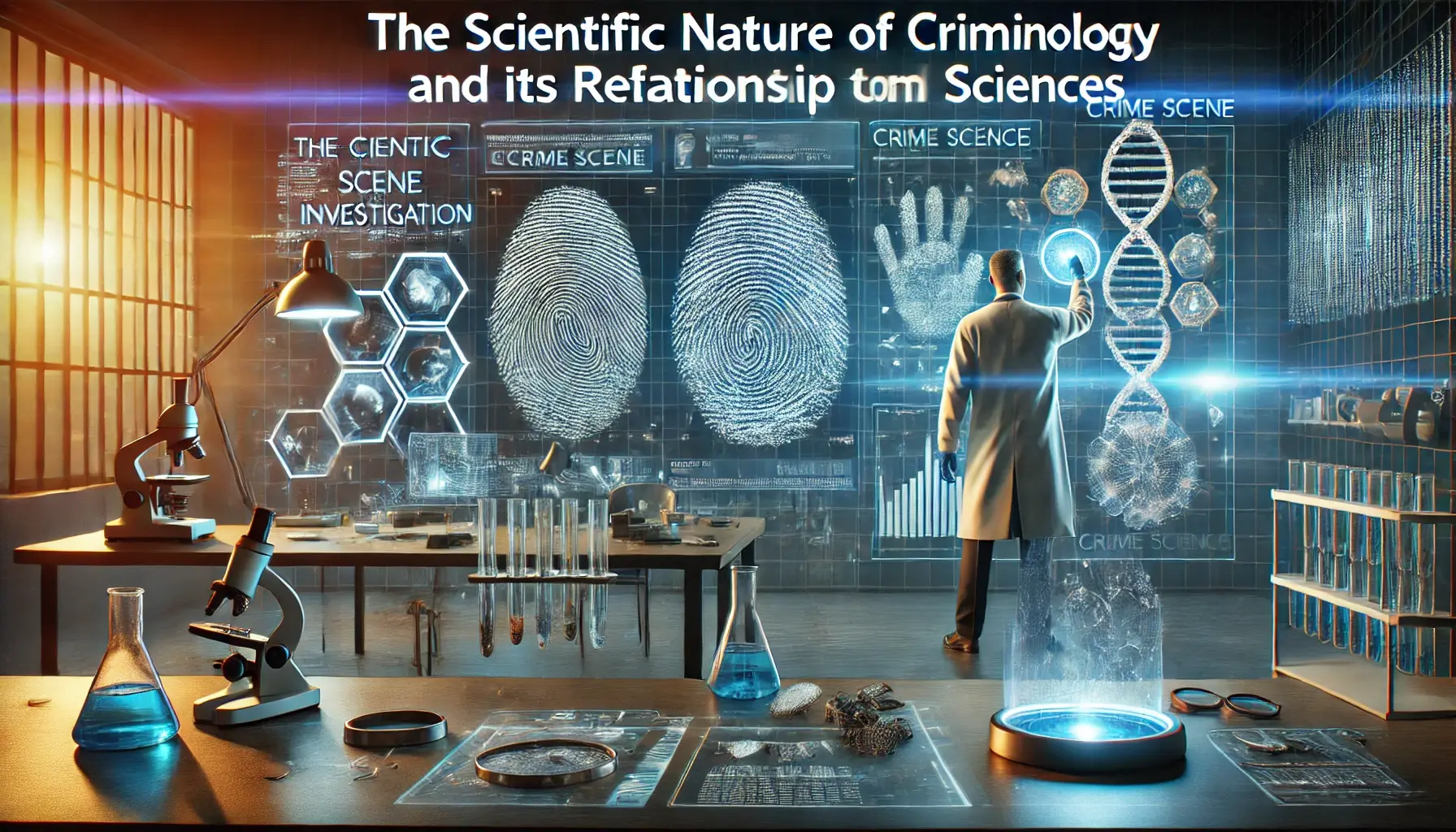The Scientific Nature of Criminology: The Opposing Trend and Its Main Criticisms
Is Criminology a Science The question of whether criminology can be regarded as a true science has long occupied a central place in criminological and philosophical debates. Since its emergence as an independent field of study, criminology has sought to explain criminal behavior through systematic observation, empirical research, and theoretical frameworks inspired by the natural … Read more

